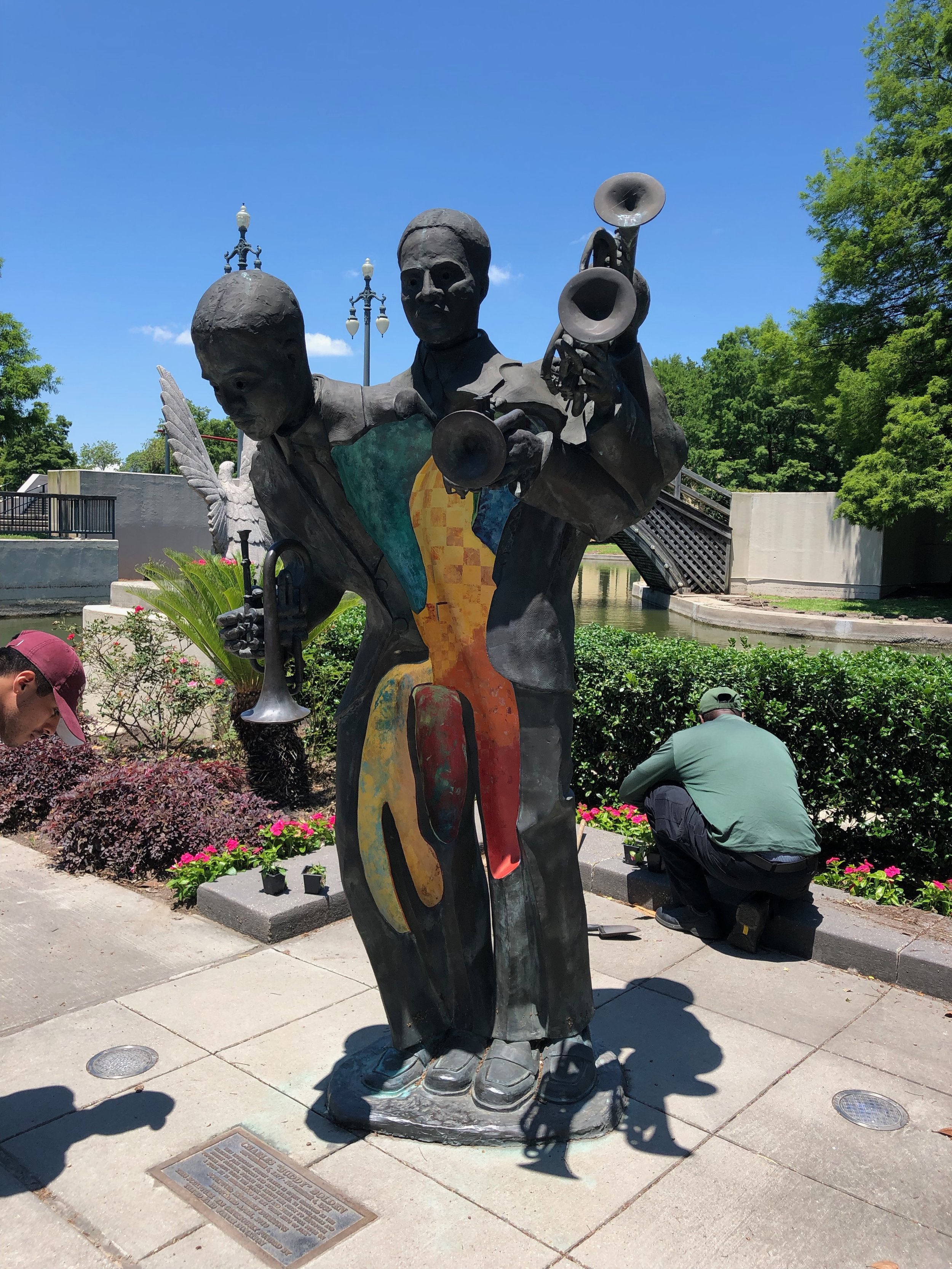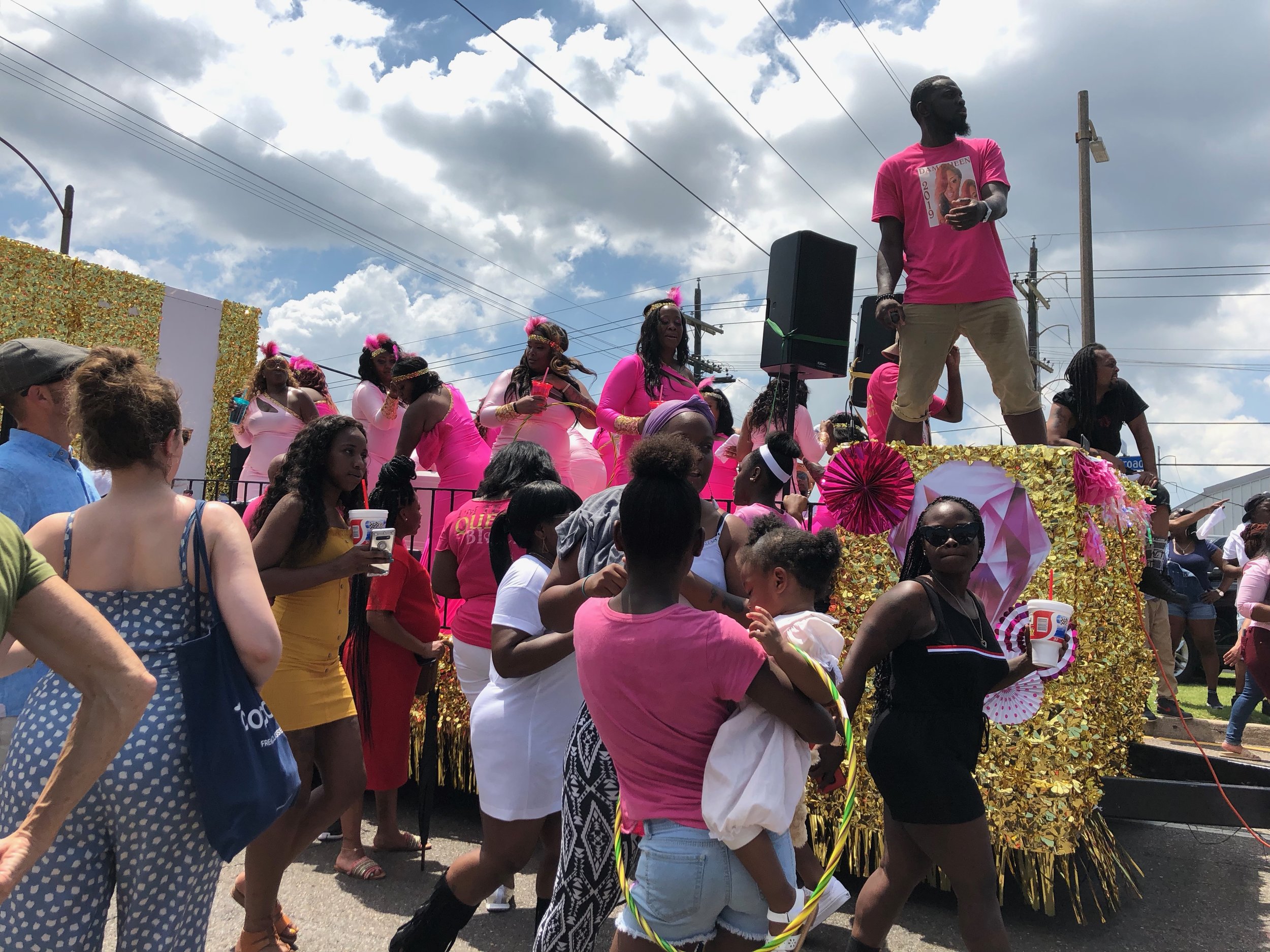People treat noise like it’s a negative word, like it’s the antithesis of music, but I don’t think noise always has to be a bad thing. New Orleans is noisy and that’s okay. It’s full of beautiful and loud noises, musicians busking in the French Quarter, cars honking at pedestrians, trollies passing in the streets. Some of the sounds are comforting and others are far from it but that is part of the city’s charm. There is another unique aspect to noise, it isn’t always an external phenomenon, just like sounds can be noisy, so can thoughts, and that is what I kept in mind while reading Michael Ondaatje’s “Coming Through Slaughter.”
In one word, it was a whirlwind full of chaos, creativity, and pain. It follows the tumultuous life of barber and jazz musician Buddy Bolden, a man whose genius was just as captivating as his personal demons.
“He was the best and loudest and most loved jazzman of his time, but never professional in the brain. ― Michael Ondaatje, Coming Through Slaughter
”
It was not an easy to read. It felt confusing and at times all over the place but that’s what jazz music is. After listening to the jazz band at Preservation Hall, I felt that I could understand the novel that much more. Jazz is essentially a beautiful chaos, sounds that shouldn’t go together but somehow does. This is the style or lack of the novel followed. It mimicked the syncopatic and improvisational essence of jazz.
“But there was a discipline, it was just that we didn’t understand. We thought he was formless, but I think now he was tormented by order, what was outside it. He tore apart the plot—see his music was immediately on top of his own life. Echoing. As if, when he was playing he was lost and hunting for the right accidental notes. ― Michael Ondaatje, Coming Through Slaughter
”
Seeing Daniel Pritzker’s film “Bolden” further emphasized the chaos that was Bolden’s life. Although, it was incredibly confusing and somewhat graphic, I loved the artistry in the transitions from Bolden’s madness to the flashbacks to his life. The film was essentially plotless but then I thought to myself, does life have a plot? The circle of life, particularly for humans, ebbs and flows by way of extrinsic and intrinsic motivations. While Bolden’s life is largely unknown, it is clear that Bolden was a pioneer in the creation of jazz music.
Seeing how ingrained jazz music has become to Louisianans is remarkable. What largely started as experimental improvisation has taken on a life of its own. I don’t think I would have recognized its importance had I not been on this bookpacking experience. The Sunday parade we attended seemed so immersive and full of life. Everyone was dancing and smiling no matter the heat. People joined and fall away as the parade moved on but the joy in the air was palpable. Music is an emotional experience and combined with jazz’s history and the strong community ties, I can absolutely understand the crowd’s response. You can’t help but move your feet or snap your fingers, it energizes you in a way that one can only understand if you can experience it in its true form.
Music is such an important aspect to New Orleans, hearing musicians busking in the streets sharing their art through sound that somehow can convey all the emotions of the human experience. It is just as much a part of New Orleans as it is to the novel. “Coming Through Slaughter” feels torn between two worlds, just like Bolden, and just like New Orleans. In Bolden’s case, the madness prevailed but New Orleans feels different. It is not simply one mind but an amalgamation of many. I don’t know which world will prevail, the historical or the modern, or if they will continue to exist together in harmony but I hope that jazz always means as much to New Orleans as I saw it that on that Sunday parade.







